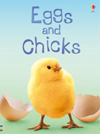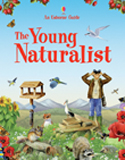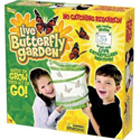
March 04, 2009
Is March here already? Curriculum season is on the way and it's time to start planning for next year:
In this Issue:
- 5 Questions You Should ask Your Children
- Spring into Science
- Affordable Science Resources
- What's New?
5 Questions You Should Ask
Your Children
 |
Here are 5 questions you should ask your children:
1. What do you like about homeschooling?
I believe it's important to start conversations like this on a positive note to put everyone at ease and let your children know you're not just opening up gripe session.
Find out what your children look forward to and enjoy. Ask them to tell you about their favorite subjects and assignments. If your children can't think of anything positive to say, add gratefulness to your list of things to work on next year.
2. What don't you like about homeschooling?
At their ages, my children don't have much of a say in where they attend school. However, I do want homeschooling to be enjoyable for all of us, and I want to know where my children see room for improvement.
If you are concerned that your children are discontent in a particular area, ask your children about it. Their answers may surprise you. I often ask my children about a perceived problem only to find that it hasn't been an issue of concern for them.
3. What subjects would you like to learn more about?
It's unrealistic to believe our children's interests will always line up with our interests or with the scope and sequence of our chosen curriculum. Of course, some subjects must be covered whether or not they interest our children, and other subjects - like math - are best covered in order.
However, there's no law that states you have to study the 4-year history cycle in order. Consider asking your children what time periods, cultures, regions or science topics they are interested in learning more about. If that seems like more responsibility than your children can handle, consider giving them a choice between two or three options.
4. What activities are you interested in trying next year?
It is easy to get stuck in a rut of co-op on Tuesdays, park days on Thursdays, this child's an athlete, this one's our little musician, this one loves art, etc.
Give your children the opportunity to step outside of the box and try new activities. At the very least, they'll meet new friends. At best, they'll develop new talents and interests.
5. What would you change about our home school or about me as your teacher?
It can be really difficult to ask children for their honest opinions about our personal performance as a parent and teacher, but I believe it's one of the most important questions we can ask.
If your children are hesitant to share their thoughts and feelings, keep working on it. If nothing else, you'll know the one thing you need to work on next year is opening up the lines of communication.
Spring into Science
 |
It's finally starting to warm up, and I can't wait to resume our daily bike rides and walks around a local lake. Nature walks are a fun way to learn about science and burn off energy.
Here are some tips for adding nature walks to your homeschool routine:
- Wear sunscreen, insect repellant, a hat and clothing that is appropriate for the weather. Bring plenty of water and snacks, or lunch if you have time for a picnic.
- Walk at different times of day and during different weather conditions. It is amazing how different a given location appears depending on the season and time of day.
- Bring a bug jar, a magnifying glass, binoculars and a field guide. Look up the names of different types of plants and animals. Bring a sketch pad or journal to record your findings.
- Make nature walks fun for younger children by playing I Spy or Nature Bingo, or by planning a scavenger hunt. Let your children collect rocks, leaves and sticks to keep in a collection or use in artwork.
- Walk at a relaxed pace and give your children time to notice sounds and smells, and examine objects of interest. Plan nature walks for leisurely days when you have plenty of time to explore.
Here is some additional information about teaching homeschool science.
Affordable Science Resources
Don't let a down economy prevent you from purchasing high-quality resources for your children. Here are some affordable products that will compliment your family's study of science and nature:
 |
Usborne's Beginners Nature series contains books that provide age-appropriate answers to questions like "How do flowers grow?" and "How do chicks come from eggs?"
These books contain real photos and recommendations for child-friendly websites that expand the learning experience. They are perfect for reading aloud or for independent reading by children on a 1st to 2nd grade reading level.
For a limited time, you can purchase Eggs and Chicks and Tadpoles and Frogs for only $1.98 each. For details, check out Usborne's internet specials!
 |
 |
This is a simple, inexpensive science activity that will give your children an up close view of metamorphosis. Add books, diagrams, a science journal and art activities to turn this project into a complete unit study.
What's New?
I spent the month of February researching our family's curriculum options for next year, and I'll spend the month of March learning about great programs and products to share with you.In next month's issue of Successful Homeschooling, you'll find information that will help you choose the best homeschool curriculum for your children for a price that won't ruin your budget!
As always, feel free to pass this newsletter on to friends and contact me with your questions or comments.
Thank you for subscribing to Successful Homeschooling!
Enjoy the journey,
Carletta